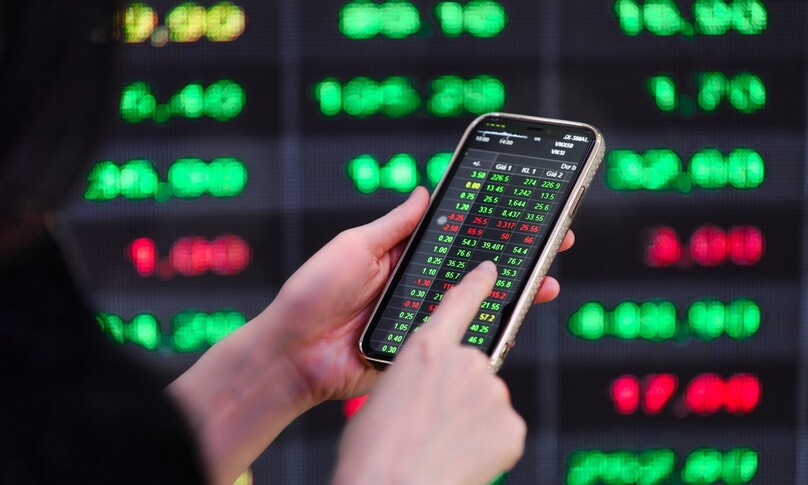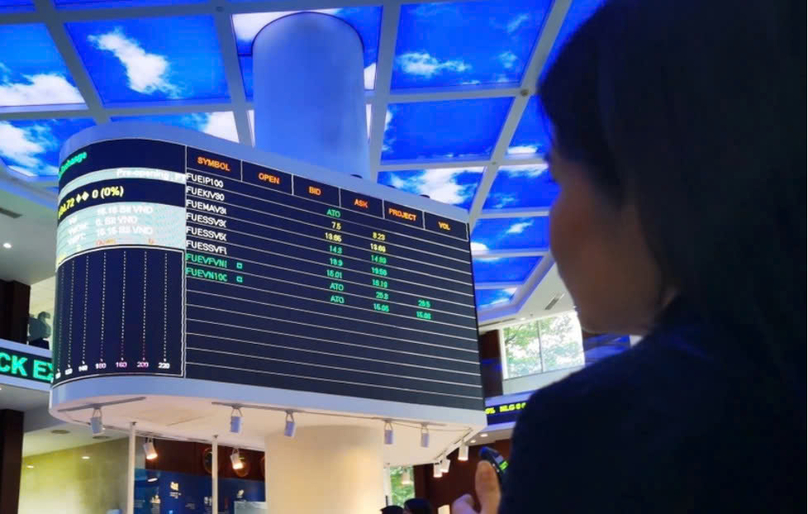
Top 10 highlights of Vietnam’s 2024 stock market landscape
Foreign investors net sold to the tune of nearly VND90 trillion ($3.53 billion) in 2024, four times the amount seen in 2023. This is one of the highlights of the Vietnamese stock market landscape in 2024.
1. Circular 68 lifts key bottlenecks, bringing Vietnam closer to market status upgrade
On September 18, 2024, the Ministry of Finance issued Circular 68 which amended and supplemented four earlier regulations. A key change was foreign institutional investors being allowed to place stock orders without fully funding them upfront (non-prefunding).
The circular also set a clear roadmap for publishing information in English. These changes are crucial for Vietnam’s ambition to upgrade its stock market status from “frontier” to “secondary emerging” by FTSE Russell.
Effective from November 2, 2024, Circular 68 has received widespread praise, particularly from international organizations and market ranking agencies. The smooth implementation of non-prefunding has met the needs of foreign institutional investors, raising hopes for a market status upgrade in 2025, in line with the government target.

In 2024, VN-Index recorded a growth of nearly 12%. Photo courtesy of VietnamFinance.
2. Stock market affected by multiple external factors
In 2024, Vietnam’s benchmark VN-Index, representing the Ho Chi Minh Stock Exchange (HoSE), recorded a growth of nearly 12%, but most of this growth occurred in the first quarter. The market stagnated over the rest of the year, struggling to break through the 1,300-point level.
This underperformance contrasted with the country’s impressive macroeconomic growth, with GDP rising by 7.4% in Q3 and 6.82% in the first nine months, coupled with a projected 7% growth for the entire year.
The VN-Index also failed to reflect the robust earnings growth of listed companies, whose profits surged by 18.8% in Q3 and 14% in nine months.
The primary cause for this market underperformance was external factors. The strengthening of the U.S. dollar triggered a surge in the exchange rate, prompting the State Bank of Vietnam to intervene by issuing treasury bills and selling USD. Moreover, the uncertainty following the U.S. presidential election contributed to global market volatility, negatively impacting Vietnam’s stock market.
3. Cyberattacks hit VNDirect Securities, PVOIL
On March 24, Vietnam’s leading brokerage firm VNDirect Securities was struck by a cyberattack, which encrypted its data and led to a disruption of its trading system. Although the system was reconnected on April 1, the recovery process was gradual.
Soon after, PVOIL, a subsidiary of state-run Petrovietnam, also fell victim to a ransomware attack, disrupting operations such as electronic invoicing and its website.
These high-profile cyberattacks served as an urgent reminder for companies to invest in robust cybersecurity measures, particularly as digitization becomes central to business operations.
4. Surge in capital raising by securities firms
Continuing the trend from late 2023, 2024 saw a significant wave of capital raising by securities firms. Prominent firms like Saigon Securities (SSI), Vietcap Securities (VCI), VIX, VNDirect Securities (VND), and LPBank Securities (LPBS) led the way. A total of 22 securities firms issued nearly 2.5 billion shares, raising approximately VND25 trillion ($981 million) to bolster their financial positions.
The wave reflects securities firms’ strategic efforts to strengthen their balance sheets in anticipation of new opportunities, particularly with the launch of the new IT system KRX and potential market upgrade expected in 2025.

An investor tracks developments of stocks. Photo courtesy of Vietnam News Agency.
5. Noteworthy securities fraud cases in court
In 2024, Vietnam saw several notorious securities fraud cases come to trial. Among the most notable was the Tan Hoang Minh case, in which Do Anh Dung, chairman of Tan Hoang Minh Group, was found guilty of orchestrating illegal issuances of bonds that defrauded over 6,600 investors of more than VND8.6 trillion ($337.5 million).
In the Van Thinh Phat case, Truong My Lan, chairwoman of Van Thinh That Group, was found to have embezzled over VND677 trillion ($26.6 billion) from the Saigon Commercial Bank (SCB). She used SCB as a financial tool to raise capital from individuals and organizations, falsifying loan documents and inflating asset values to withdraw funds.
In another case, Trinh Van Quyet, former chairman of FLC Group, was sentenced for securities market manipulation and embezzlement, illicitly profiting around VND4.3 trillion ($168.7 million).
6. Foreign investors' record net selling
2024 witnessed a historic wave of net selling by foreign investors in Vietnam's stock market. By mid-December, their net selling had reached nearly VND90 trillion ($3.53 billion), nearly four times the level seen in 2023.
This capital outflow was driven by more attractive investment opportunities in other markets, notably in the U.S., where the dollar strengthened and protectionist policies bolstered the performance of American companies.
While the S&P 500 surged 27% and Bitcoin skyrocketed by 149%, the VN-Index only increased by 12%. This trend was mirrored in other Asian and emerging markets, with capital flowing back to developed economies.

The capital flow from domestic investors is seen as the main driving force helping to prevent the Vietnamese market from falling further amid the net selling pressure from foreign investors. Photo by The Investor/Hoang Trieu.
7. National Assembly approves revised Securities Law
On November 29, 2024, the National Assembly, the legislative body, passed the revised Securities Law. The new law aims to improve the transparency and efficiency of securities issuance and trading. It also features regulations to combat fraud and ensures that violators are held accountable.
A key addition was the establishment of a legal framework for the clearing and settlement of securities transactions through a central counterparty clearing house (CCP), which is expected to enhance market efficiency.
8. Corporate bond market shows positive recovery
After the turbulence of 2022-2023, Vietnam’s corporate bond market staged a strong recovery in 2024, both in terms of volume and quality. By December 25, the total value of corporate bonds issued had surpassed VND455 trillion ($17.85 billion), marking a 32% increase over 2023. Of this, public bond offerings amounted to VND46.4 trillion ($1.82 billion), up by over 30% year-on-year.
This recovery was fueled by improvements in issuer quality, the emergence of green bonds, and a more stable macroeconomic environment. With continued economic growth and the enactment of the new Securities Law, the corporate bond market is expected to continue its positive trend in 2025.

Vietnam's corporate bond market saw positive recovery in 2024. Photo courtesy of the Vietnam Chamber of Commerce and Industry.
9. Government bond market marks 15 years of growth
In 2024, Vietnam’s government bond market celebrated its 15th anniversary. Since its inception in 2009, the market has grown significantly, playing a key role in raising funds for the national budget, restructuring public debt, and stabilizing the economy.
Over the past 15 years, the market has raised over VND3,250 trillion ($127.53 billion) for the state budget, averaging about VND220 trillion annually, five times more than in the 2000-2008 period.
The outstanding government debt reached over VND2,350 trillion ($92.2 billion) by the end of 2024, accounting for 23% of GDP and an 18-fold rise from 2009. The secondary market has also seen a remarkable increase in liquidity, now averaging VND11.2 trillion ($439.5 million) per session, compared to VND365 billion per session in 2009.
10. Record low number of listings
In 2024, Vietnam's stock market saw a record low number of listings, with only 10 companies being listed. These included two companies transferring from the Unlisted Public Companies Market (UPCoM) to the Hanoi Stock Exchange (PTX of Petrolimex Nghe Tinh Transportation and Service JSC and CAR of Tri Viet Education Group) and eight new listings on the Ho Chi Minh Stock Exchange (RYG of Royal Invest, DSE of DNSE Securities, MCM of Seed Moc Chau Dairy Cattle Corporation, HNA of Hua Na Hydropower, QNP of Quy Nhon Port, TCI of Thanh Cong Securities, NAB of Nam A Bank, and VTP of Viettel Post).
With over 900,000 businesses operating in Vietnam, this number of listings is notably small. The low level of new listings highlights a missed opportunity for companies to tap into the stock market for capital raising and brand promotion.
The limited diversity of listed companies also reduces the appeal of the market for new investments and undermines its competitiveness, especially as investor preferences shift between different asset classes.




